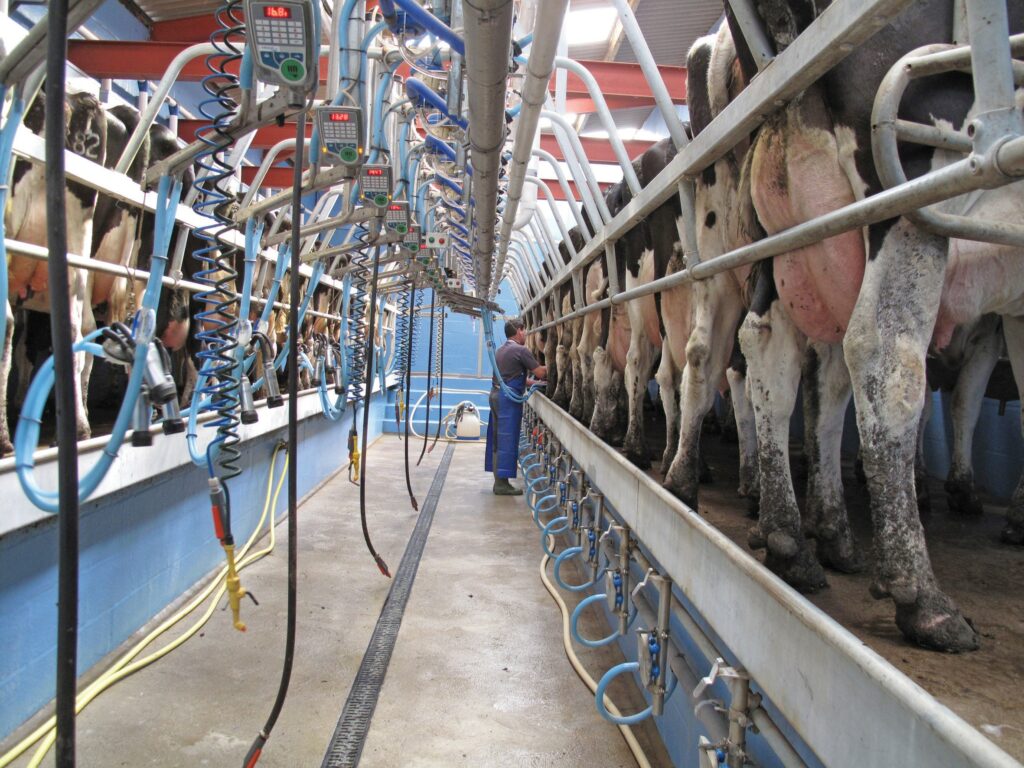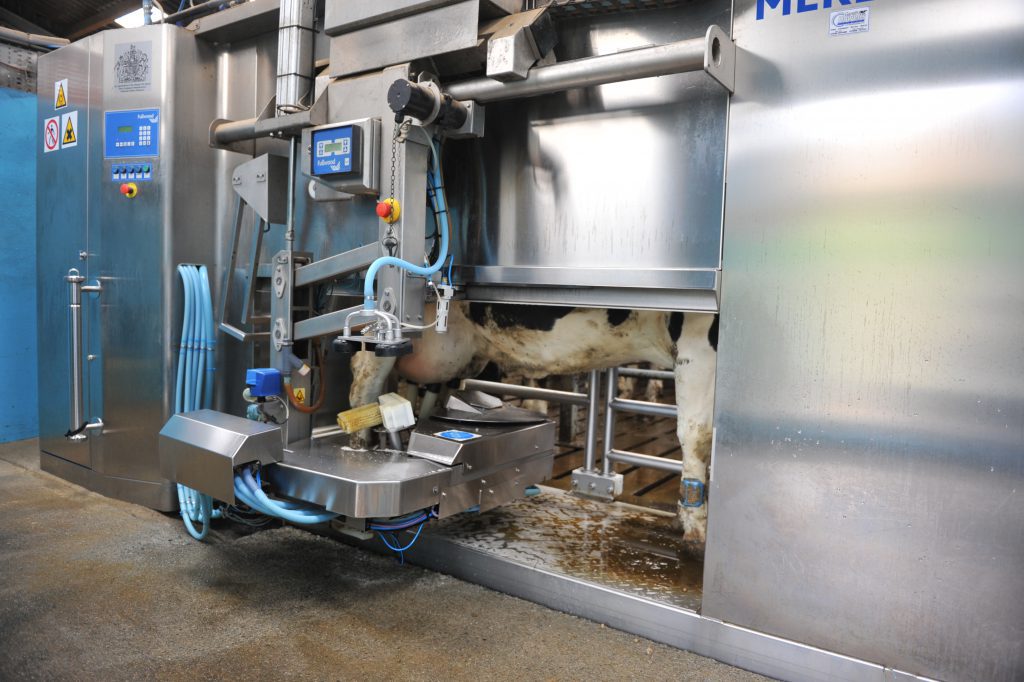All dairy farmers know that they have a responsibility to minimise or eliminate residues in milk during the production process.
A key area of interest for Irish farmers is chlorate residue, which can be left by using chlorinated detergent products to clean equipment.
This increases the trichloromethane (TCM) within the product, which can have an impact on these products being exported. For example, as lactic butter or infant milk formula.
Increasingly, farmers are turning to chlorine-free wash systems to reduce the chlorate and TCM level in their milk.
It is important that a structured wash programme is followed to ensure effective cleaning of the equipment and also thorough rinsing at each stage. Kilco has developed a wash programme to achieve this.
Moorepark study
The wash programme was used for a study at Teagasc Moorepark on the Kilworth research farm. The aim of the study was to establish if the Kilco chlorine-free wash routine could maintain low bacterial counts in the bulk milk tank, while having no TCM in the milk.
There were no issues with the use of the products or dosing the chemical through the Dairymaster automatic wash system.
In addition to the microbiological tests undertaken by the milk processor, a random number of milk samples were collected during the study period and both sets of results are presented.
The average total bacterial count (TBC) was 9,788 cfu/ml (total samples = 15). Thermoduric bacterial counts ranged from non-detected to 340 cfu/ml, with an average reading of 58 cfu/ml. Overall the cleaning product / system gave excellent microbiological results over the five month period. More information on the study results can be found here
- Step 1: Wash jets, clusters and remove milk filters;
- Step 2: Rinse the system thoroughly using at least 14L of water per cluster;
- Step 3: Add a chlorine free cleaning product, such as Autosan Blue, at the specified rate;
- Step 4: Circulate the product for 10 minutes to ensure all areas of the system are reached;
- Step 5: Rinse the system well using at least 10L/unit of clean, cold water with peracetic acid at 0.2% dosage rate.
At least three times per week, you should use a product to remove mineral deposits such as Kilco Milkstone Remover.
Autosan Blue
A chlorine-free, alkaline-based cleaner which is suitable for use in parlours, bulk milk tanks and robotic/electronic systems. It is low foaming and suitable for use in hot and cold water.
Autosan Red
A low-foaming, phosphoric acid cleaner. This product is suitable for use on all milking equipment, including robotic and electronic systems.
Clearway Plus
A chlorine-free powder for use as a circulation cleaner. It can be used with hot or cold water and is ideal in hard-water areas.
Milkstone Remover
A phosphoric acid descaler for removing deposits in bulk-milk tanks and milking equipment. Suitable for use in hot and cold water.
Farmers’ views
When the Byrne family’s milk buyer informed them that they had to switch to a non-chlorine cleaning detergent to comply with new regulations, they feared this would impact on their total bacterial count (TBC).
But, since introducing Kilco’s Autosan Blue in their daily wash programme their TBCs have improved.
“We were told by an expert that we wouldn’t get as good a result. But, I am pleased to report that we are getting a better result,” stated Frank Byrne, who runs a herd of 110 cows on an all-year-round calving system with his son Aran.
To get the hygiene bonus and the top milk price we have to achieve a TBC of under 30,000 and we are averaging 8,000. We have even got it down as low as 3,000.
In addition to the efficacy of the product, application and attention to detail are important too, Frank added.
The Byrnes supply Lakeland Dairies, a processor which does not allow its suppliers to use detergents containing chlorine because residues cause serious problems for its manufactured products.
At Beechbrook, near Cashel, Co. Tipperary, award-winning dairy farmers Philip and Nicky Thornton supply Centenary Thurles Co-operative Creamery with milk from their herd of 130 spring-calving cows.
The simplicity of the wash routine from Kilco and the fact that it was clinically trialled and proven to work effectively was a deciding factor.
They have since been using Autosan Blue and Autosan Red in the autowash system in their 20-unit herringbone milking parlour.
“We have been very pleased with the product; our TBCs range between 4,000 and 10,000,’’ Philip stated.
We won the co-op’s milk-quality award last year, so we must be doing something right.
Philip says it is reassuring to know that the Kilco products are working.
“The co-op had told us we could use a chlorine product just once a month because they weren’t confident the product would do the job.
“After a few months, I was convinced enough that the products were working so I stopped doing that in July 2017 and I haven’t had any problems. It is reassuring to know that they are doing the job.’’
More information
For more information about how to implement chlorine-free cleaning in your parlour, contact your local Kilco representative at: 0044-1576205480. Click here for more information









